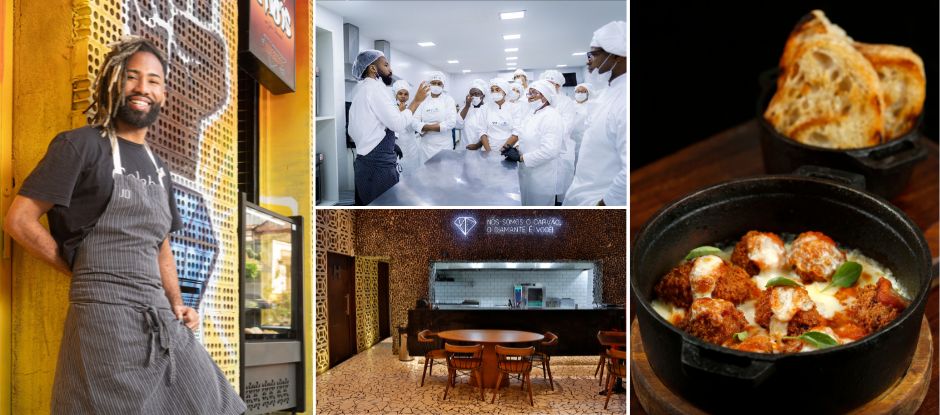Growing up in a Rio de Janeiro favela, João Diamante was surrounded by violence. Now he uses food to help thousands of people out of poverty. The winner of the Champions of Change Award as part of The World’s 50 Best Restaurants 2024 talks about cooking with undervalued cuts of meat and turning down an offer from Alain Ducasse
Looking out over Paris from inside the iconic Le Jules Verne within the Eiffel Tower, João Diamante had achieved what many Brazilians could only dream of: a stage in one of the most romantic cities in the world, under Alain Ducasse, one of the best chefs in the world. At 24 years old, he had finally escaped poverty and was living 9,000 km from the Rio de Janeiro favela where he grew up.
“Imagine a poor Black kid from a favela suddenly living in Paris opposite the Jardin du Luxembourg and working in one of the best restaurants in the world – it feels like a dream,” says Diamante, now 33.
“Chef Ducasse asked why I hadn’t quit yet, when so many others had left because the kitchen was so tough. I told him, ‘Chef, I’m from Rio de Janeiro. I come from a favela where life really is tough. I now live in one of the most affluent places in the world, working in the Eiffel Tower with one of the best chefs in the world. You think that’s tough? For me, this is paradise!’”
Yet when Ducasse offered him the opportunity to stay in France with a permanent role in the luxurious Hotel Plaza Athénée, Diamante was quick to say no. Having lost countless friends and acquaintances to drugs-related violence in the community where he grew up, he felt compelled to help stop others from following that path.
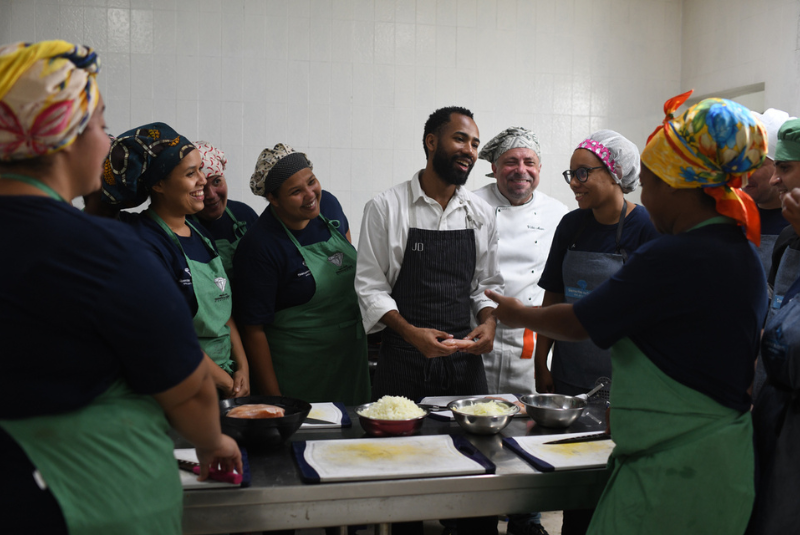
During the Diamantes Empreenda course, students are given food and funding
“I told him I have a dream,” recounts the Brazilian, who was born João Augusto Santos Batista. “I said, ‘I didn’t get to Paris on my own. Many people helped me to get here, so my dream is to have a social project where I can help others using gastronomy. So, thank you, Sir, but I need to go back to Brazil to realise my dream.’”
Diamonds in the kitchen
Diamantes na Cozinha was born in 2016, as soon as the chef returned to Rio. Meaning ‘diamonds in the kitchen’, the title comes from the childhood nickname he was given by a friend. Its main component is Diamantes Empreenda, a month-long culinary and entrepreneurship course where people from vulnerable backgrounds learn cooking, pastry, hospitality, food security, sustainability, marketing, sales and inclusion.
Students are given a food basket and a stipend so they can focus fully on the course, which in turn leads to employment. They are selected from the most vulnerable backgrounds, whether financial, emotional or social vulnerability, and there’s a particular emphasis on single mums, as well as consideration for race, LGBTQ+ communities and other factors.
“When you’re hungry, you can’t learn,” says Diamante. “When a student enrols, we give them food and funding, taking them off the first rung of the pyramid, which is hunger. Nelson Mandela said, ‘Education is the most powerful weapon you can use to change the world,’ and I agree. The second stage is financial security, and the third is self-esteem, where you have both money and knowledge. The top of the pyramid is when you’re able to dream because you’re no longer hungry, you have knowledge and an income.”
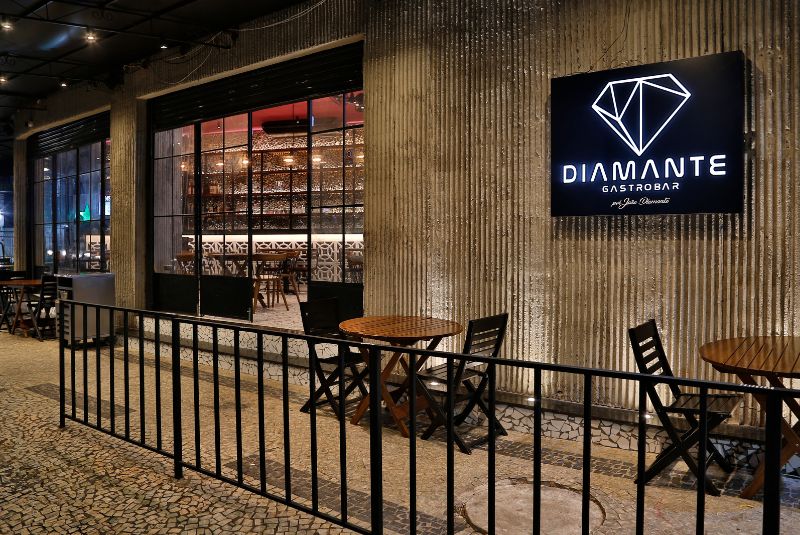
The Diamante Gastrobar is primarily run by graduates of the course
For every student, the project helps five people due to the knock-on effect on their families. Diamantes na Cozinha has benefited more than 3,500 people, growing its programmes with support from corporate sponsors. In addition to month-long and week-long courses, it also runs talks, online courses and other activities.
“If we take the literal translation of a diamond, it’s a raw object that is found in rocky places and if it’s put under pressure, if it’s cut, it’s worth a lot,” he says. “That’s what we do today with Diamantes na Cozinha – we find people in their raw state and give them knowledge to reveal a value that’s impossible to calculate.”
Finding value in offal
In 2024, the chef opened Diamante Gastrobar, a restaurant run primarily by graduates of the programme, serving food from undervalued cuts of meat. Located in Maracanã, not far from the Andaraí community where he lived until age 27, it serves dishes such as gizzard bourguignon, a reinterpretation of the French classic made with an often-disregarded protein, and parmigiana made from chicken hearts instead of breast meat or beef.
“Fine dining is about knowledge, not ingredients,” says Diamante. “If I give you the knowledge, you can make haute cuisine using any product you can find in your house. At Diamante Gastrobar, we use ingredients that aren’t considered ‘noble’ and we make them noble: gizzards, heart, liver, muscles. People say, ‘wow, I can make that at home too.’”
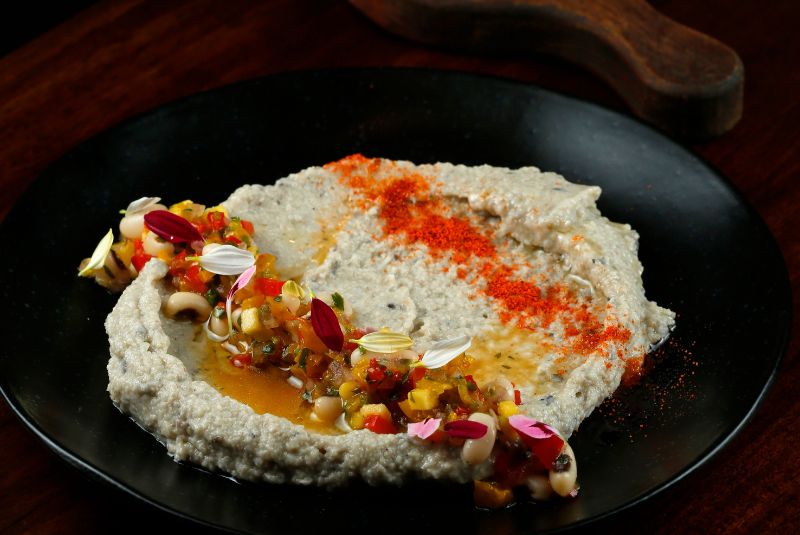
As well as the gastrobar, Diamante also runs É Nóis, which sells casual Brazilian bites
Next to the gastrobar is É Nóis, a snack bar selling typical Brazilian bites like coxinha (a deep-fried croquette shaped like a teardrop and filled with shredded chicken) from small entrepreneurs. One beneficiary is Dona Jô, who was selling around 50 of her coxinhas per month from her home before she met Diamante. Thanks to the exposure, she now makes more than 400 per month, sells through multiple retailers, and has had to hire additional staff.
Going full circle
Diamante’s mission to help others is driven by his childhood. Born in Salvador in the northeast of Brazil in 1991, he moved to Rio at six months old because his mother wanted to give him a better start in life.
Despite working long hours as a domestic maid, she couldn’t earn enough to meet the family’s basic needs, so from the age of five, Diamante worked too, selling street snacks and taking fares on the bus. “In Brazil, it’s ‘normal’ for a young kid to be working,” he says.
Throughout his childhood, Diamante took every bit of help he could get from community projects, getting involved in theatre, ballet, jiu-jitsu and capoeira, a Brazilian martial art that incorporates dance. “Those social projects helped me become the person I am today,” he says.
At 14, he joined a young apprentice programme, where he worked for an engineering company until, at 17, he began compulsory military service. It was in the Brazilian Navy that he first became interested in food, having already cooked at home.
“I could see that food had the power to transform,” he says. “In the British Navy, people would die from food poisoning, so the cook’s role was incredibly important. I became an admiral’s cook, and it was the admiral who suggested I study gastronomy.”
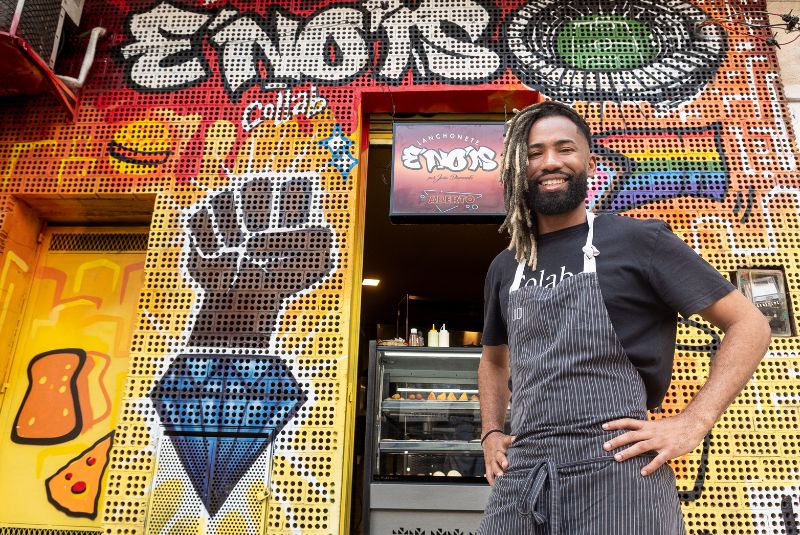
João Diamante is a Champion of Change 2024
Thanks to a full government grant, he went to study at Rio de Janeiro’s Universidade Estácio de Sá, where Alain Ducasse was a patron. Despite not having heard of the famous French chef, Diamante was soon among the top three students and was offered a stage in Paris.
When the option came to build a career as a fine dining chef in France or return to Brazil to help others, the answer was obvious. He set up Diamantes na Cozinha with support from the same young apprentice scheme that had given him his first job in engineering at 14.
Transforming lives
At the same time, Diamante was met with incredulity from Brazilian journalists who believed he should be using his newfound status to shoot for Michelin stars. Graduates from his programme now work for acclaimed chefs such as Roberta Sudbrack, Felipe Bronze and Claude Troisgros, but Diamante would much rather be awarded for helping others.
“I never wanted to be a cook,” he says. “I didn’t have a choice, like people from middle-class backgrounds do. Cooking appeared in my life and I seized the opportunity. I do what I do because I know gastronomy can transform the lives of thousands of people.”
The list of The World’s 50 Best Restaurants 2024, sponsored by S.Pellegrino & Acqua Panna, was announced at a live awards ceremony on Wednesday 5 June from Las Vegas. To stay up to date with the latest news, follow us on Instagram, Facebook, X and YouTube, and sign up to our newsletter.
